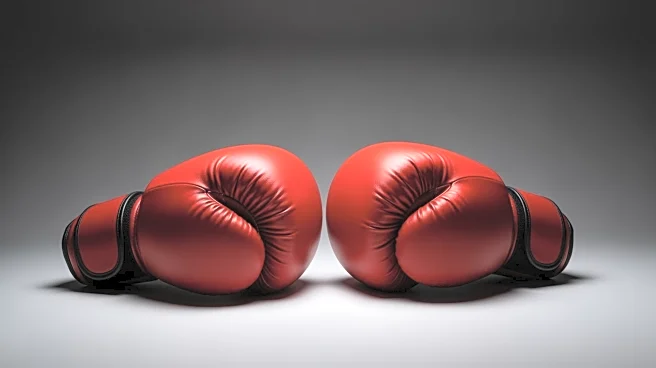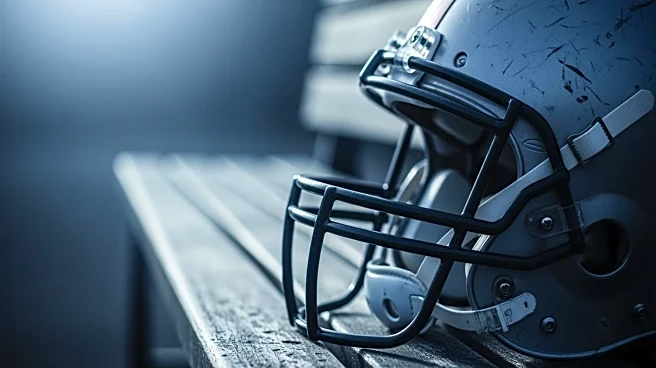What's Happening?
Claressa Shields has publicly criticized Jake Paul for his comments following the cancellation of his scheduled fight with Gervonta Davis. The fight was called off due to legal issues surrounding Davis,
who faces accusations of aggravated battery and other charges. Paul expressed regret over the partnership, citing Davis's history of legal troubles and unprofessional behavior. Shields argues that Paul was aware of Davis's background before agreeing to the fight, suggesting that his moral stance post-cancellation is inconsistent. Shields highlighted that Davis's legal issues were known prior to the fight arrangement, questioning Paul's decision to bring them up only after the cancellation.
Why It's Important?
The cancellation of the fight between Jake Paul and Gervonta Davis has significant implications for the boxing industry, particularly in terms of event planning and fighter reputations. Paul's comments may affect his public image and future partnerships, as they highlight the complexities of aligning with fighters who have controversial backgrounds. Shields's criticism underscores the importance of transparency and accountability in sports partnerships. The situation also raises questions about the ethical considerations in promoting fights involving individuals with legal issues, potentially influencing public perception and industry standards.
What's Next?
Following the cancellation, Jake Paul is reportedly seeking a new opponent to headline a Netflix card later this year, with potential dates in December. UFC legend Nate Diaz has expressed interest in a rematch with Paul, which could serve as a replacement for the canceled fight. The decision on Paul's next opponent will likely impact his career trajectory and the dynamics of celebrity boxing matches. Stakeholders, including promoters and fans, will be watching closely to see how Paul navigates this situation and whether he can maintain his momentum in the boxing world.
Beyond the Headlines
The controversy surrounding the canceled fight highlights broader issues in the sports industry, such as the ethical implications of promoting events involving individuals with legal troubles. It also reflects the challenges faced by athletes in managing their public personas and the potential backlash from aligning with controversial figures. This situation may prompt discussions on the responsibilities of promoters and athletes in ensuring ethical standards are upheld in sports partnerships.









